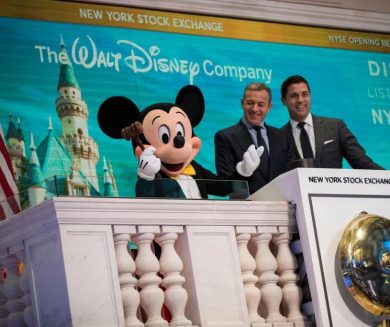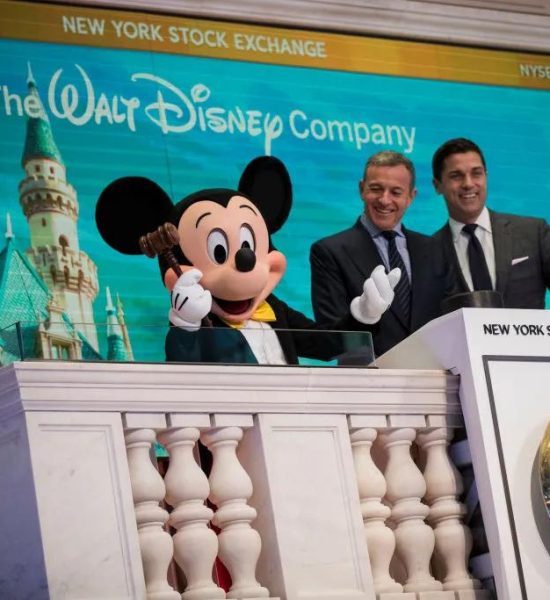06. Midjourney Responds to Disney and Universal: “You Can’t Use It and Blame It”

Mickey Mouse and chief executive officer and chairman of The Walt Disney Company Bob Iger prepare to ring the opening bell at the New York Stock Exchange. DREW ANGERER/GETTY IMAGES
AI visual creation platform Midjourney has issued its first official response to the copyright lawsuit filed by Disney and Universal.
The company strongly denied the allegations in the lawsuit, arguing that the studios have no right to prevent the use of their work in AI training.
In the lawsuit filed in June, the studios accused Midjourney of “willful and systematic copyright infringement,” alleging that users were creating near-exact copies of copyrighted characters. However, Midjourney’s lawyers argued that US copyright law does not grant absolute control to creators and offers exceptions within the framework of “fair use” to protect the public interest.
Another striking element of Midjourney’s response was the studios’ alleged “hypocrisy.” The company stated that Disney and Universal’s own employees actively use the platform, and that VFX studios that work with these companies even widely prefer Midjourney. It also referenced a past speech by Disney CEO Bob Iger, in which he called AI “an invaluable tool for artists.”
Midjourney emphasized that its users are obligated to comply with its terms of service and that directly infringing content is prohibited. However, it argued that simply creating images resembling familiar characters is not sufficient to constitute copyright infringement. The lawyers noted that content produced for legitimate purposes, such as “non-commercial fan art, parody, critique, and cultural commentary,” has always existed in the art world.
Midjourney is represented in this case by Bobby Ghajar and his team at Cooley LLP. Ghajar previously defended Meta in similar copyright cases concerning AI training.
This case is seen as a significant legal battle that tests the boundaries of whether AI training can be considered copyright infringement and could serve as a precedent.
06. Midjourney Responds to Disney and Universal: “You Can’t Use It and Blame It”

Mickey Mouse and chief executive officer and chairman of The Walt Disney Company Bob Iger prepare to ring the opening bell at the New York Stock Exchange. DREW ANGERER/GETTY IMAGES
AI visual creation platform Midjourney has issued its first official response to the copyright lawsuit filed by Disney and Universal. The company strongly denied the allegations in the lawsuit, arguing that the studios have no right to prevent the use of their work in AI training.
In the lawsuit filed in June, the studios accused Midjourney of “willful and systematic copyright infringement,” alleging that users were creating near-exact copies of copyrighted characters. However, Midjourney’s lawyers argued that US copyright law does not grant absolute control to creators and offers exceptions within the framework of “fair use” to protect the public interest.
Another striking element of Midjourney’s response was the studios’ alleged “hypocrisy.” The company stated that Disney and Universal’s own employees actively use the platform, and that VFX studios that work with these companies even widely prefer Midjourney. It also referenced a past speech by Disney CEO Bob Iger, in which he called AI “an invaluable tool for artists.”
Midjourney emphasized that its users are obligated to comply with its terms of service and that directly infringing content is prohibited. However, it argued that simply creating images resembling familiar characters is not sufficient to constitute copyright infringement. The lawyers noted that content produced for legitimate purposes, such as “non-commercial fan art, parody, critique, and cultural commentary,” has always existed in the art world.
Midjourney is represented in this case by Bobby Ghajar and his team at Cooley LLP. Ghajar previously defended Meta in similar copyright cases concerning AI training.
This case is seen as a significant legal battle that tests the boundaries of whether AI training can be considered copyright infringement and could serve as a precedent.